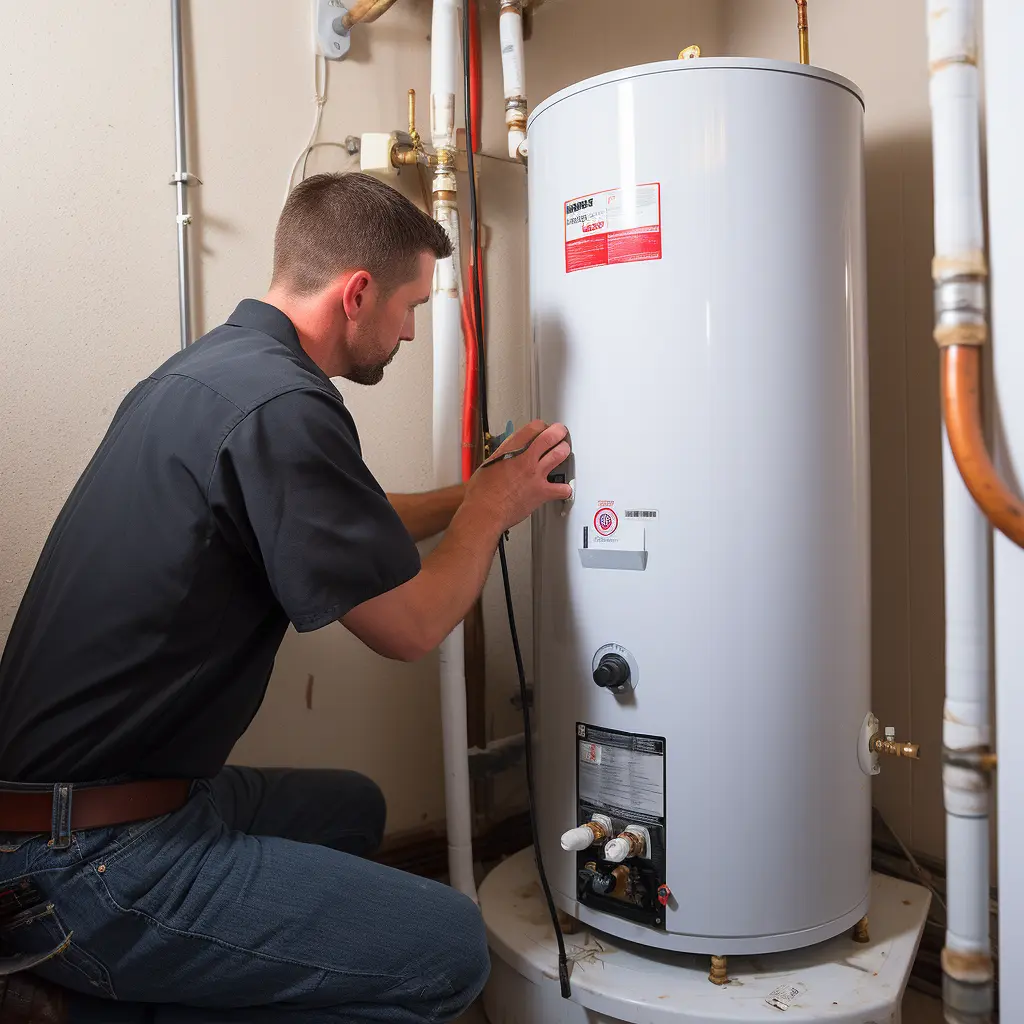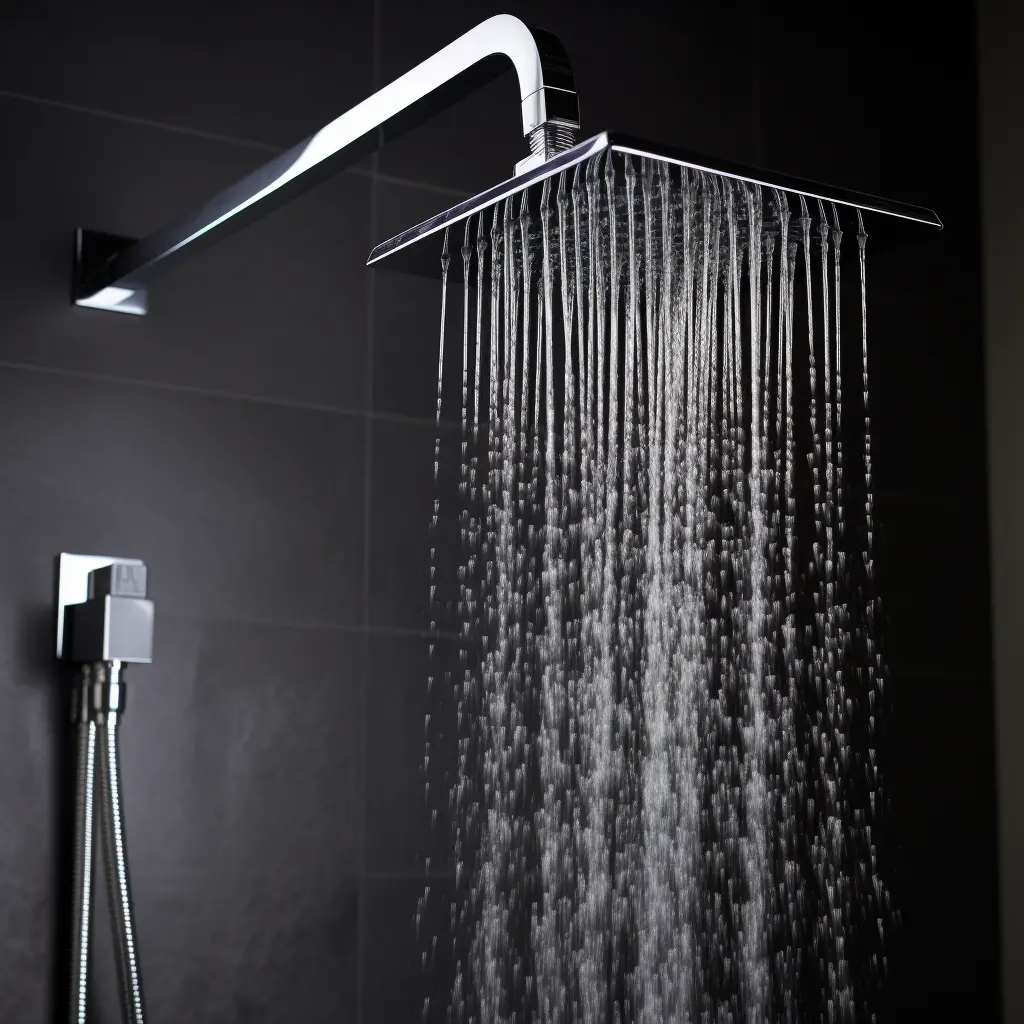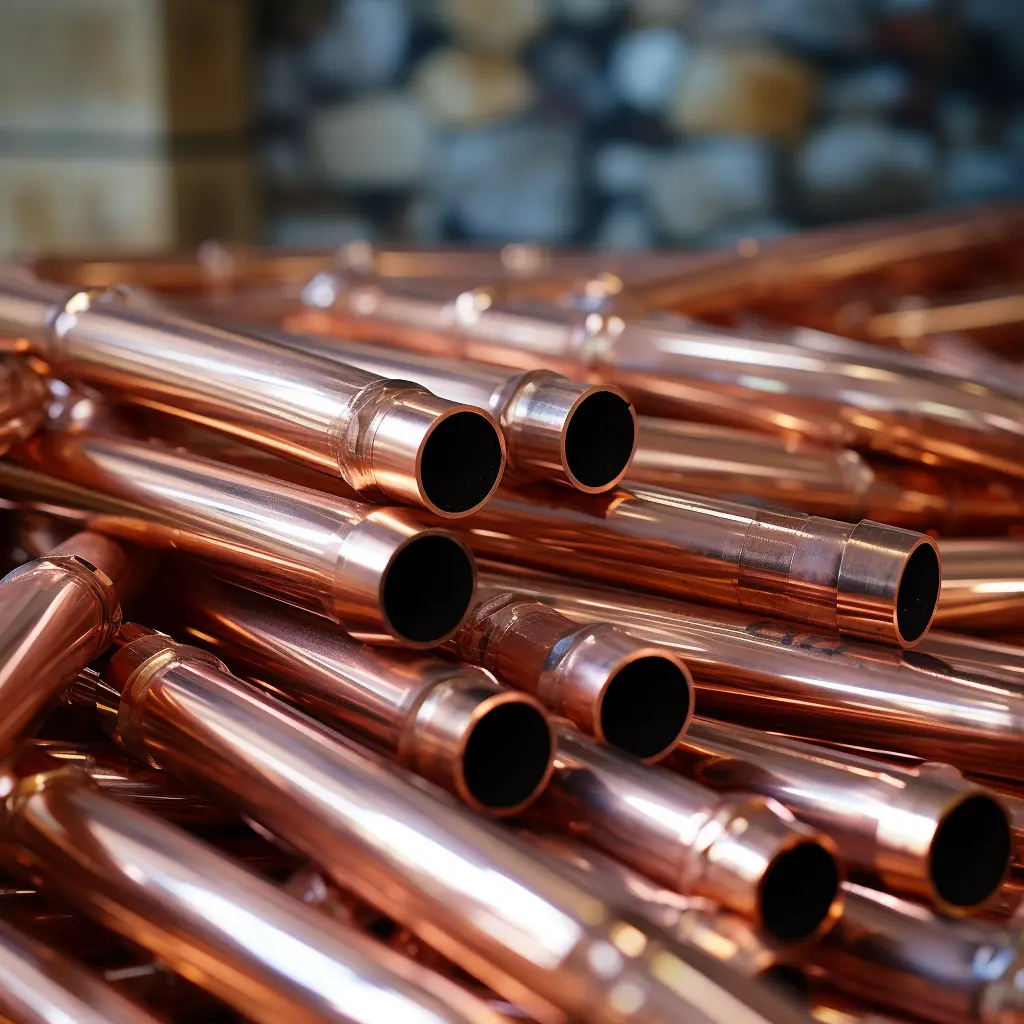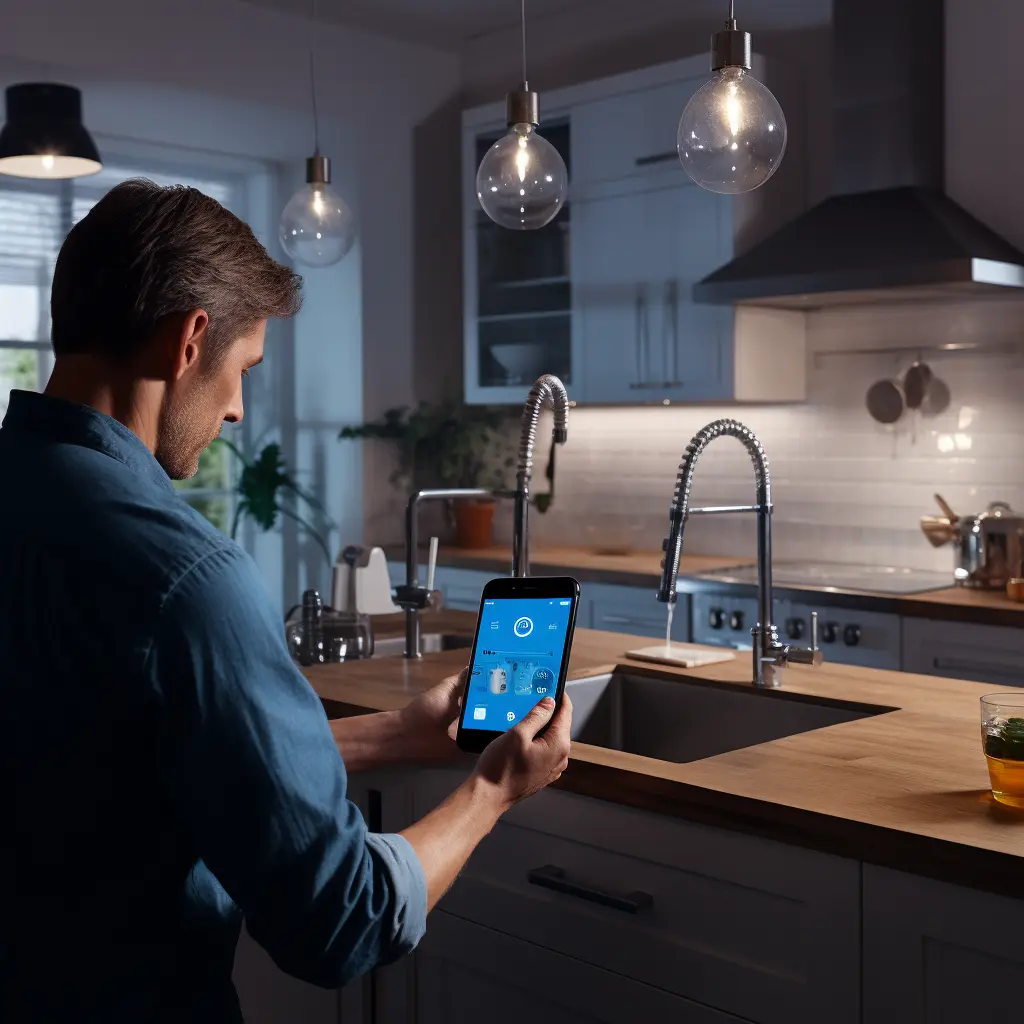Greetings, fellow Floridians! In an era where eco-consciousness is not just a trend but a necessity, we at Kingdom Based Plumbing are here to guide you through the intricacies of eco-friendly plumbing. Whether you’re in Jacksonville, St. Augustine, or any of our lovely St. John’s County neighborhoods, this guide will help you make informed choices for a greener, more sustainable home.
The Green Wave: Understanding Eco-Friendly Plumbing
Eco-friendly plumbing is more than just a buzzword; it’s a commitment to reducing our environmental footprint. Imagine this: the average American family uses over 300 gallons of water per day, a significant amount of which goes down our drains and toilets. By opting for eco-friendly systems, we not only save water but also contribute to a healthier ecosystem.
What Makes a Plumbing System Eco-Friendly?
Eco-Friendly Plumbing Pipes: These are usually made from sustainable or recycled materials, offering durability and reduced environmental impact.
Eco-Friendly Plumbing Systems: A holistic approach that includes efficient water heaters, low-flow fixtures, and water-conserving technologies.
Eco-Friendly Plumbing Fixtures: Think faucets, toilets, and showerheads that use less water without compromising functionality.
Eco-Friendly Plumbing Materials: Beyond pipes and fixtures, this includes the use of non-toxic materials for sealing and insulation.
The Practicalities: Choosing Your Eco-Friendly System
1. Assessing Your Current Plumbing Infrastructure
Before embarking on the journey towards an eco-friendly plumbing system, it’s crucial to take a comprehensive look at your existing plumbing infrastructure. This initial step is not just about identifying the age or type of pipes and fixtures you have; it’s about understanding how your current setup impacts both your water usage and the environment. Let’s delve into this in detail.
The Initial Plumbing Audit: What to Look For
The first step in this process is conducting a thorough plumbing audit. This involves:
Inspecting Pipe Materials: Are your pipes made from PVC, copper, or perhaps something older like galvanized steel? The material can significantly impact water quality and efficiency.
Checking for Leaks: Even a small drip can waste gallons of water over time. Identifying and fixing leaks is a crucial step towards water conservation.
Evaluating Fixtures: How efficient are your toilets, faucets, and showerheads? Older models can be significant water wasters.
Water Heater Efficiency: Assessing the age and condition of your water heater can reveal a lot about your home’s water and energy usage.

- The Role of a Professional Assessment
A professional plumber can provide invaluable insights during this assessment. They bring not only their expertise but also tools like moisture meters and thermal imaging cameras to detect hidden leaks or insulation issues. They can test water pressure to ensure it’s within a healthy range, preventing both water wastage and strain on your pipes.
- Understanding Your Water Usage
This step goes beyond the physical infrastructure. It’s about understanding your household’s water usage patterns. How long are showers typically? How often do you run the dishwasher or washing machine? This data, often overlooked, is critical in tailoring an eco-friendly plumbing system that meets your specific needs.
- Comparing Against Eco-Friendly Standards
With the data in hand, you can now compare your current system to eco-friendly benchmarks. How does your water usage stack up against the average for eco-conscious homes? This comparison will not only highlight areas for improvement but also help in setting realistic goals for your eco-friendly transition.
- Developing a Plan for Transition
Armed with a comprehensive understanding of your current plumbing system and water usage patterns, you can now develop a plan to transition to a more eco-friendly system. This plan should prioritize upgrades that offer the most significant environmental impact and cost savings.
Conclusion: Understanding your current plumbing setup is the foundation upon which a sustainable, eco-friendly system is built. By thoroughly assessing your home’s plumbing, you can make informed decisions that lead to significant water conservation and environmental benefits.
2. Water-Efficient Fixtures: The Heart of Eco-Friendly Plumbing
Embracing water-efficient fixtures is akin to adopting a new philosophy in home plumbing. It’s about striking a balance between conservation and comfort, ensuring that every drop of water is used judiciously without sacrificing the pleasures of modern living. This section delves into the world of water-efficient fixtures and how they can transform your home into an eco-friendly oasis.
The Magic of Low-Flow Fixtures
- The Low-Flow Showerhead: A Luxurious Experience

Low-flow showerheads have evolved dramatically. Gone are the days of weak water pressure and unsatisfying showers. Modern low-flow showerheads are designed to provide a luxurious shower experience, using air or specialized nozzles to maintain water pressure while significantly reducing water usage. They come in various styles and settings, allowing customization for personal preferences.
- High-Efficiency Toilets: Saving Water with Each Flush
The toilet is one of the largest water consumers in the average home. High-efficiency toilets have revolutionized water conservation in the bathroom. Using less than 1.28 gallons per flush (compared to old models that use 3.5 gallons or more), these toilets employ powerful flush technology to ensure effectiveness. Some models even offer dual flush options, providing a lower water volume option for liquid waste.
- Eco-Friendly Faucets: Reducing Water Waste
Eco-friendly faucets, equipped with advanced aerators, reduce water flow without compromising on functionality. They are ideal for sinks in kitchens and bathrooms, where a significant amount of water is used daily. These faucets can cut water usage by up to 30%, a substantial saving over time.
The Impact of Water-Efficient Fixtures
- Cost and Environmental Benefits
By installing water-efficient fixtures, households can see a considerable decrease in their water bills. The environmental impact is equally impressive, with significant reductions in water consumption contributing to the conservation of our precious water resources.
- Rebates and Incentives
Many local governments and utility companies offer rebates and incentives for installing water-efficient fixtures, making the switch more affordable for homeowners.
- Making the Right Choice
When selecting water-efficient fixtures, it’s important to look for certifications like the EPA’s WaterSense label, ensuring that the products meet strict efficiency and performance criteria. Additionally, consider the style and compatibility with your existing plumbing system.
Conclusion: Water-efficient fixtures are a cornerstone of eco-friendly plumbing. By embracing these technologies, homeowners in Northeast Florida can play a pivotal role in water conservation while enjoying the comforts of modern plumbing.
3. Embracing Sustainable Materials in Plumbing
In the realm of eco-friendly plumbing, the choice of materials plays a pivotal role. Sustainable materials for pipes and fixtures are not just about longevity; they represent a commitment to environmental stewardship and resource conservation. This section will explore the various sustainable materials available for plumbing and their benefits, both environmental and practical.
Understanding Sustainable Plumbing Materials
PEX (Cross-Linked Polyethylene): The Modern Choice
PEX has emerged as a frontrunner in sustainable plumbing. It’s a flexible, durable material that resists scale and chlorine, doesn’t corrode, and reduces heat transfer, making it more energy-efficient. Its flexibility means less need for fittings, reducing the risk of leaks, and it can be easily routed through walls and floors, simplifying installation.
Recycled Copper: Timeless and Sustainable

Copper has been a trusted material in plumbing for centuries. Opting for recycled copper for pipes and fixtures not only maintains this tradition but also contributes to environmental sustainability. Copper is highly durable, resistant to corrosion, and can be recycled repeatedly without losing its properties.
Other Sustainable Materials
Stainless Steel: Known for its strength and corrosion resistance, stainless steel is an excellent choice for fixtures. When sourced responsibly, it is highly sustainable.
Cast Iron: Particularly for drain pipes, cast iron (especially when recycled) is a robust and long-lasting choice.
Bamboo Fixtures: Emerging as a novel material, bamboo is being used for certain plumbing fixtures due to its sustainability and unique aesthetic appeal.
The Benefits of Sustainable Plumbing Materials
- Durability and Longevity
Sustainable materials tend to have a longer lifespan, reducing the need for frequent replacements and, in turn, less waste and resource use.
- Reduced Environmental Footprint
Using recycled and eco-friendly materials helps in conserving natural resources and reducing the carbon footprint associated with manufacturing new plumbing materials.
- Health and Safety
Many sustainable materials are free from harmful chemicals, contributing to a healthier home environment.
Making the Right Choice
When choosing sustainable materials, consider factors like compatibility with your existing system, local climate, and water quality. It’s also important to source these materials from reputable suppliers to ensure quality and sustainability credentials.
Conclusion: Opting for sustainable materials in your plumbing system is a significant step towards an eco-friendly home. By choosing materials like PEX and recycled copper, homeowners in Northeast Florida can enjoy a reliable, efficient plumbing system while contributing positively to the environment.
4. Smart Water Systems: Revolutionizing Home Plumbing
In an age where technology permeates every aspect of our lives, plumbing has not been left behind. Smart water systems represent a significant leap in home plumbing, offering unprecedented control and efficiency in water usage. This section will delve into the intricacies of smart water systems, their functionalities, and how they contribute to creating an eco-friendlier home.
The Essence of Smart Plumbing Systems
Smart plumbing systems are an amalgamation of advanced technology and traditional plumbing. These systems are designed to provide homeowners with real-time data and control over their water usage, leading to more efficient and eco-friendly homes.
Key Features of Smart Water Systems

Leak Detection: Smart systems can detect leaks, no matter how small, in real-time. This helps in preventing water waste and potential water damage.
Water Usage Monitoring: These systems provide detailed insights into water usage patterns, allowing homeowners to identify areas where they can reduce consumption.
Remote Control of Water Fixtures: Imagine being able to turn off your water supply or adjust your water heater temperature from your smartphone. Smart systems make this possible.
Automated Adjustments: Based on the collected data, smart systems can automatically adjust the water flow and temperature to optimize for efficiency and conservation.
The Impact of Smart Water Systems
- Conservation of Water
By pinpointing leaks and monitoring usage, smart water systems play a crucial role in water conservation, an essential aspect in regions like Northeast Florida, where water conservation is crucial.
- Cost Savings
Reduced water wastage directly translates to lower water bills. Additionally, by preventing leaks, these systems save on potential repair costs.
- Environmental Benefits
Less water wastage means a lower environmental footprint, contributing positively to the overall health of our ecosystems.
Choosing the Right Smart Water System
When selecting a smart water system, consider compatibility with your existing plumbing infrastructure, ease of use, and the level of control it offers. It’s also important to choose systems that come with robust security features to protect your home network.
Conclusion: Smart water systems are more than just a convenience; they are a step towards a more sustainable and responsible way of living. By integrating these systems into our homes, we not only enhance our quality of life but also contribute to the larger goal of environmental conservation.
The Impact: Benefits of Eco-Friendly Plumbing
Reduced Water Bills: Eco-friendly systems are synonymous with efficiency, leading to noticeable savings on your water bill.
Environmental Conservation: Every drop of water saved contributes to the health of our beautiful Florida ecosystems.
Long-Term Savings: While the initial investment might be higher, eco-friendly plumbing systems often result in long-term financial savings.
Community Tales: Real-World Examples
Let’s take a stroll down memory lane in Northeast Florida. Remember the 2018 water crisis in St. Augustine? Residents who had eco-friendly systems in place were not only exempt from the stress of water shortages but also played a crucial role in water conservation efforts.
The Kingdom Based Plumbing Promise
As a family-run business deeply embedded in the community, our dedication goes beyond mere service. We are committed to providing eco-friendly solutions tailored to the unique needs of Northeast Florida residents.
Conclusion: Embracing the Green Plumbing Revolution
Choosing an eco-friendly plumbing system is not just a personal choice; it’s a community statement. It’s about saying, “I care about our water, our environment, and our future.”
Your Questions Answered
What is Eco-Friendly Plumbing?
It’s a sustainable approach to plumbing that conserves water, uses eco-friendly materials, and reduces environmental impact.
How to Make My Plumbing Eco-Friendly?
Start by replacing old fixtures with water-efficient ones, opt for sustainable materials, and consider smart water management systems.
What are the Benefits of an Eco-Friendly Plumbing System?
You’ll enjoy reduced water bills, contribute to environmental conservation, and benefit from long-term savings and efficiency.
With this guide, we hope to illuminate the path to a greener, more sustainable plumbing choice for your home. Remember, every eco-friendly choice we make contributes to a healthier Northeast Florida. Let’s make a difference, one drop at a time!



